President Sisi laments Western criticism over democracy in Egypt
- Published
- comments
President Abdul Fattah al-Sisi: "I think we have seen very positive change"
Right from the get-go, Egypt's President makes it clear he wants to set the record straight.
Even as we film our introduction, he hears me say to camera that while he says he has a "roadmap for democracy," not everyone is convinced.
He quickly jumps in. "There is a roadmap for real democracy in Egypt."
When I start to ask him a first question about it, he stops me again and says in flawless English: "Please let me explain."
Then he resumes his defence in Arabic. "The Egyptians have the right to choose their own leaders and also to choose the way they live their lives. We are trying to achieve that."
Putin of Egypt?
It was a confident start and in stark contrast to a protest campaign and newspaper columns in Britain which deride him as a dictator who should not have been invited for an official visit.
"He's like the Putin of Egypt," remarks my BBC colleague Giselle Khoury after her own interview with Egypt's leader. In other words, he's a strong man who enjoys popularity at home even as he comes under criticism in the West.
But opinion is deeply divided in his own country too. Some believe he's the leader Egypt needs now to move this nation forward after the turbulence of recent years. Others fear he is taking them back to even darker days of authoritarian rule.
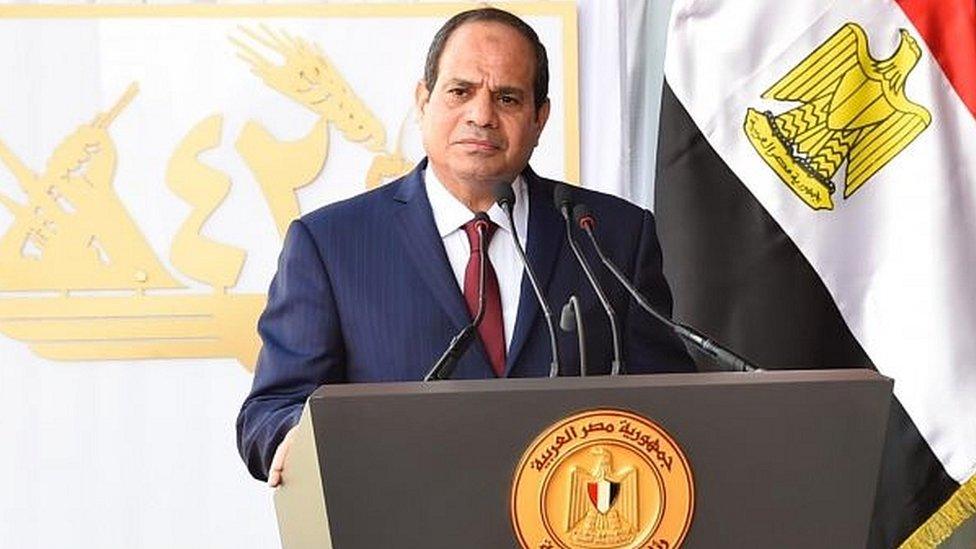
Abdel Fattah al-Sisi is visiting the UK at a time of concern over Egypt's human rights record
If he has a genuine plan to move Egypt along the road to greater democratic freedoms, the question is how long will it take to get there, and is he heading in the right direction?
He fields my questions long after my allocated time has expired. And despite polite asides from aides that he's now running way behind schedule, he continues our conversation, switching to fluent English as we walk through the marbled halls of the gleaming Ittihadiya Palace.
State of emergency
The President in a smart blue suit is at pains to emphasise he's not the same military man, with the same security mindset, who spent four decades in uniform. Now he's an elected leader presiding over a country whose challenging security and economic "realities" are a world apart from Europe's.
"Give me the environment you have in Europe, and you will never need anything of the kind," he remarks as he defends a harsh counterterrorism law that's been widely condemned by Egyptian and international human rights groups as a "permanent state of emergency."
"Look at what we are suffering from. Look at the terrorism we have to deal with. Tell me how many army and police personnel were killed by extremists."
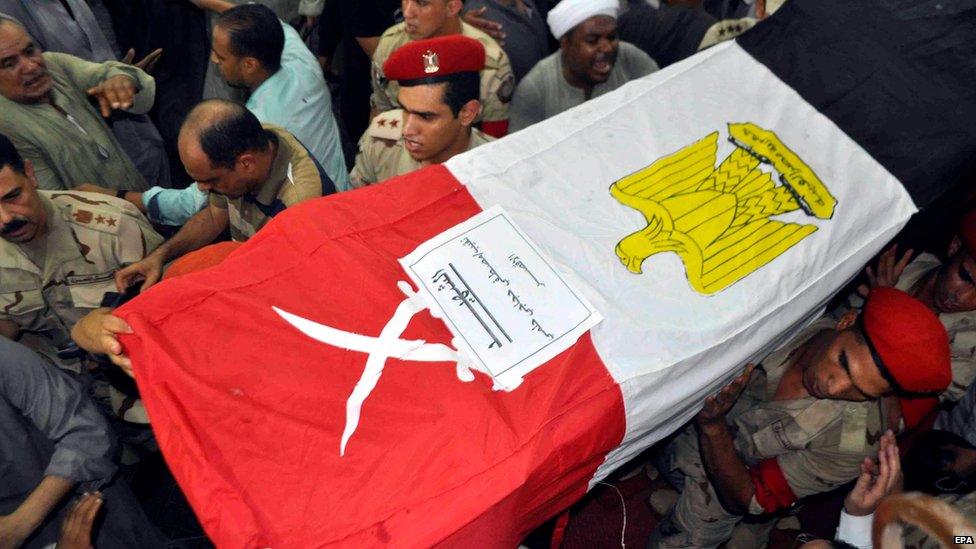
At least 600 Egyptian security personnel have been killed in militant attacks since 2013
He's equally impassioned when he speaks of the West's "little success" in tackling forces of the so-called Islamic State that threaten Egypt from within, and from across the border in neighbouring Libya.
"They take too much time to study the situation before they make any decision," he laments, pointing out that as Western countries ponder what to do, the problem just keeps getting worse.
He keeps coming back to Egyptians' fear that the collapse in neighbouring Libya, and the chaos in Syria, are knocking on Egypt's door.
Security is clearly uppermost in his mind.
Road to democracy
So, he admits, all is not as it should be when it comes to democracy.
"What has been achieved may not be the best, " he admits, "but we are moving ahead and will make further progress."
Egyptians who turned out in their millions in early 2011, making history and mesmerising the world, have already lived through three presidents, two parliamentary contests and three referendums on the constitution.
And a black day of unprecedented violence in August 2013 left hundreds of Muslim Brotherhood supporters dead after the movement was ousted in what some call a coup and others, including President Sisi, see as another popular uprising. That stain won't go away anytime soon.
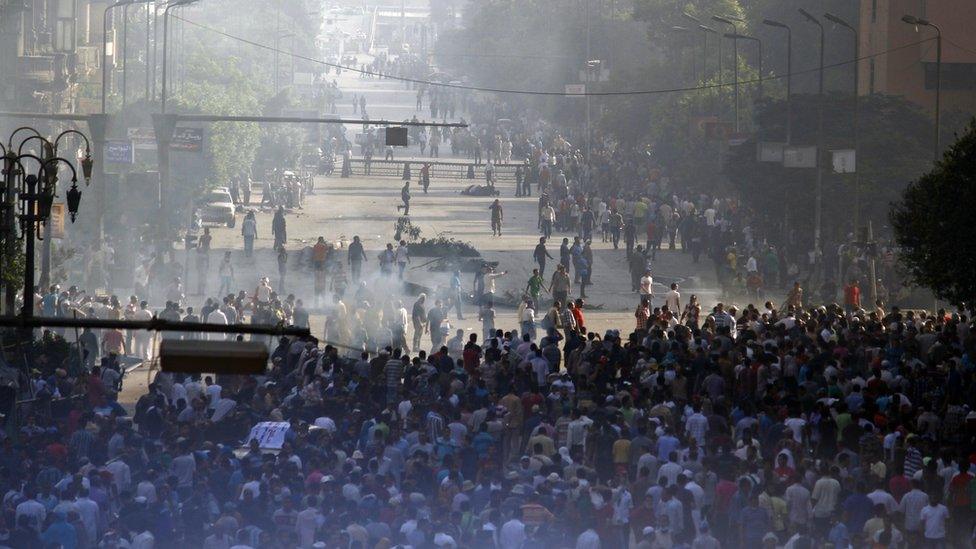
Hundreds of of Muslim Brotherhood supporters were killed during protests in August 2013 after police authorised the use of live ammunition
Young activists who flooded Tahrir Square in peaceful protest nearly five years ago accuse him of betraying the promises of their peaceful uprising. Some of the leading lights of that time are now in jail, or forced to live in exile.
But President Sisi often invokes the wishes of his people. He invokes their plight when he laments that human rights can't solely be seen from a "Western perspective."
"Millions are in difficult economic conditions, wouldn't it be better to ask about them and how good living conditions be provided for them?
And he says it's the people who will decide what role, if any, the banned Muslim Brotherhood can play in Egypt's future. For now, tens of thousands are in prison, and hundreds on death row while they wait for a final judgement to emerge from the labyrinth of Egypt's judicial system.
'Greater patience'
Diplomats who watch the President closely say he's changed over the past few years, moving from a gray military man in the shadows to a more confident person, more at ease in the spotlight.
It causes me to remember other generals I've known in other places who grew to love the perks and privileges of power, and decided to stay put because they convinced themselves the people wanted them there.
But the president told a visiting delegation of British parliamentarians earlier this year that he didn't want to be a "traditional Arab leader."
"Never again will someone rule over Egyptians against their will," he insists, adding for emphasis: "Never."
"Now it is one or two terms (in office) maximum," he explains, citing the new constitution.
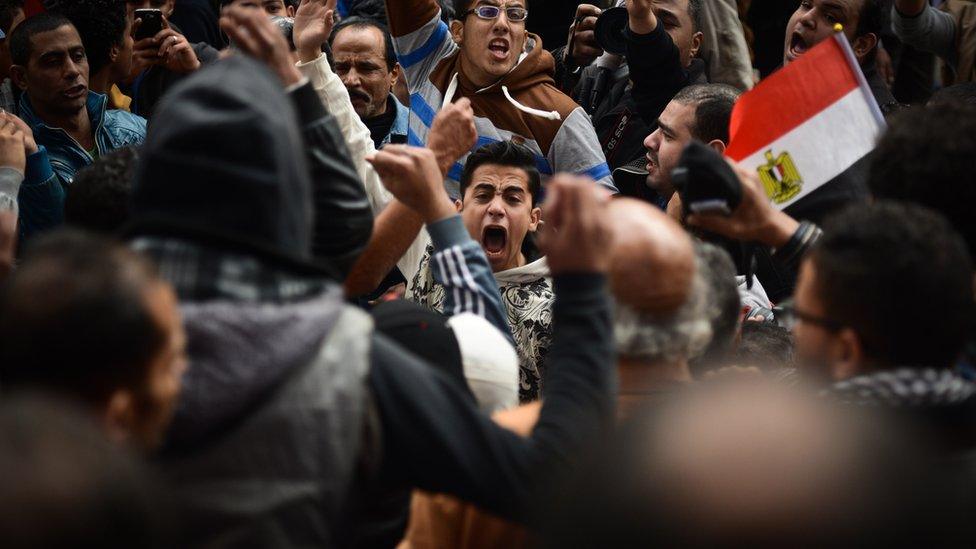
Egyptians protest against President Sisi in Cairo earlier this year
It's clear he's won strong support from some, strong condemnation from others, and in the middle are the many Egyptians in a vast nation of 90 million who just want life to get better.
Food prices are going up, so is unemployment, and many are asking how long it will take.
President Sisi is asking for more time and even greater patience.
But for all his words, he still insists "judge me by my actions." That is what Egyptians will do, and what many have already done.
- Published13 August 2015
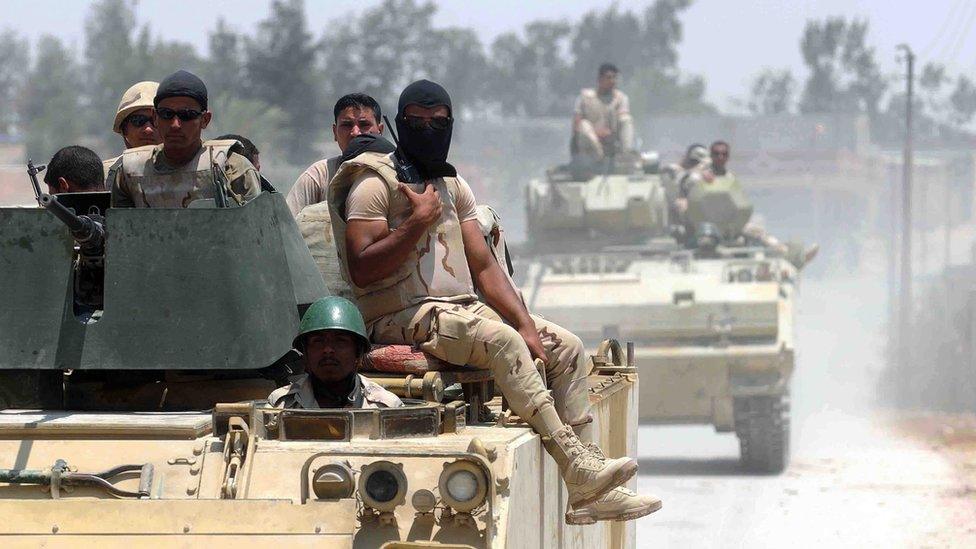
- Published1 December 2020
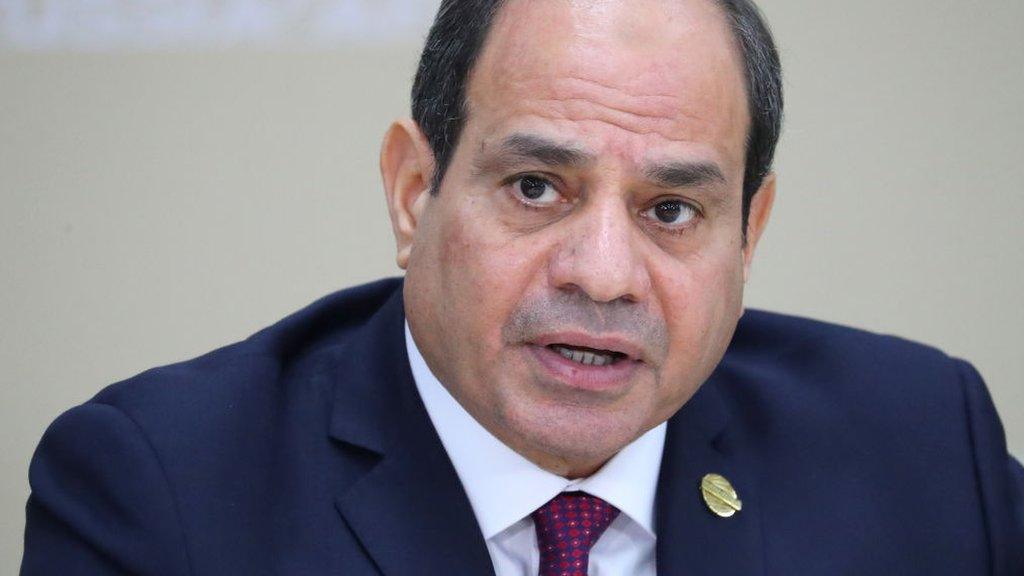
- Published17 June 2019
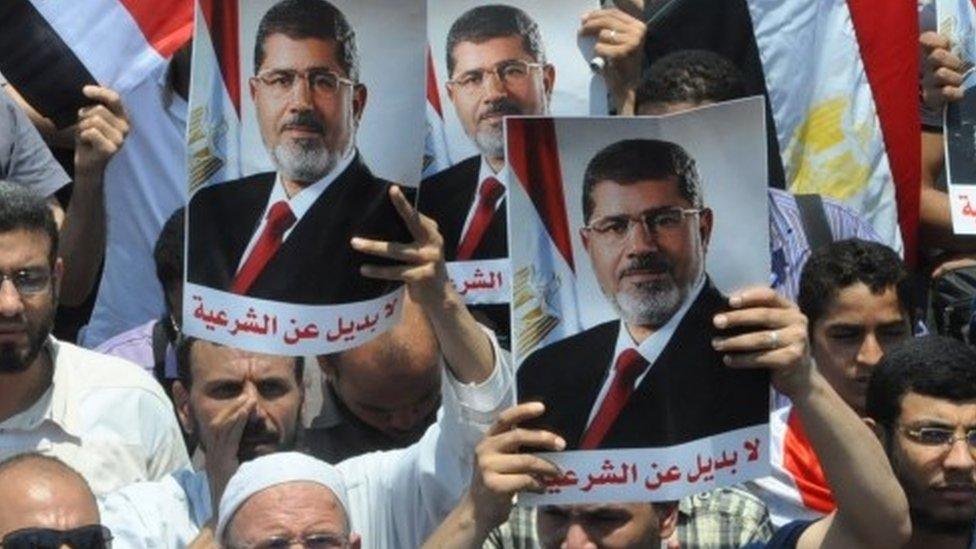
- Published25 December 2013
